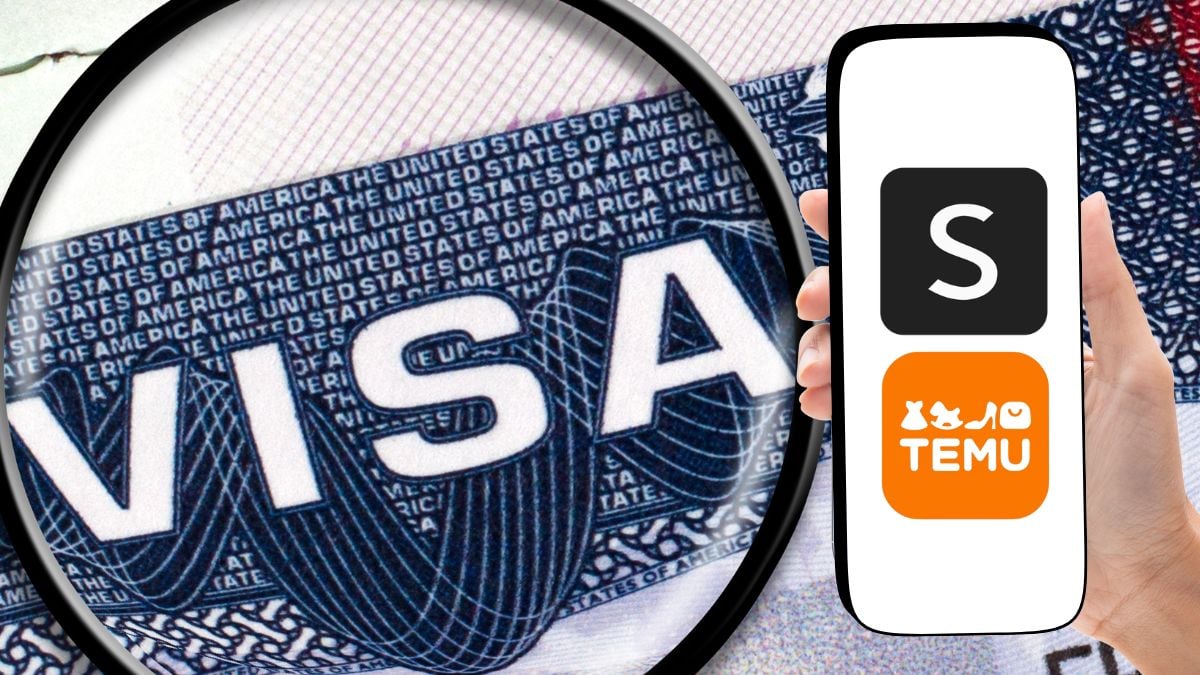
In recent weeks, concern has grown over whether using apps like Temu, Shein, or AliExpress could affect the application or validity of the U.S. visa. It all began after a post shared by the U.S. Embassy in Mexico urging people to delete these platforms from their mobile devices, which triggered a surge in searches related to the U.S. visa and these popular online stores.
Why did the U.S. Embassy ask to delete Shein, Temu, and AliExpress?
The U.S. Embassy published a video featuring Andrés Díaz Bedolla, founder of the Yumari platform and former participant of the Young Leaders of the Americas Initiative (YLAI), promoted by the State Department.
In the video, Díaz Bedolla expressed concern about the impact these apps have on the local economy and the security of users’ personal data.
“If you have low-cost product apps on your phone, it’s time to delete them. Not only because they have a Class Action Suit in the U.S. and are being sued for the amount of data they steal from your phone, but simply because every time you buy on a platform that is willing to lose 30 dollars per transaction in Latin America just to disrupt and completely kill local industries that could compete with them — that’s something we shouldn’t be supporting if we truly want economic growth and development for our country,” the entrepreneur stated in the video shared by the U.S. Embassy.
The message aligns with a more aggressive trade policy under Donald Trump, who imposed a 20% tariff on all imports from China in response to the alleged inaction of the Asian country regarding the fentanyl crisis.
It’s worth noting that on April 2, Trump is expected to announce new “reciprocal” tariffs against Chinese goods, which could further escalate economic and political tensions between the two powers.
Can you be denied a U.S. visa for having Shein or Temu?
Although the U.S. Embassy raised concern with its message, there is currently NO official regulation or immigration law stating that having Shein or Temu installed on your phone is grounds for visa denial or revocation. However, the call to delete them reflects a broader geopolitical context and ongoing trade frictions between the U.S. and China.
It’s important to note that the U.S. has tightened its immigration policies in recent years, and while there is no direct link between these apps and visa procedures, the fact that the topic was addressed by official channels has stirred uncertainty among users.
What does Shein say about data security concerns?
Following the controversial post — which was eventually deleted from social media — Shein responded by reaffirming its commitment to data protection. In an official statement, a spokesperson for the brand said:
“Our Global Privacy team, which includes professionals around the world, works to protect our customers’ personal data in line with leading industry practices and applicable regulations. We implement advanced data protection technologies to identify threats, mitigate risks, and prevent intrusions. Customer information is stored with top-tier cloud service providers such as AWS and Google Cloud.”
The company also mentioned that it holds international certifications like ISO 27001 and PCI DSS, which validate its encryption and data protection processes, along with a robust system designed to prevent data leaks.
What actions has Mexico taken against Shein and Temu?
The Mexican government has also started taking steps against these platforms. In January 2025, Mexico imposed new tariffs of 19% on products from countries without free trade agreements, such as China, and a 35% tariff on textile goods. These measures directly impact apps like Shein and Temu.
Additionally, authorities established a limit of 10 shipments per person per month, and users must now provide their CURP or RFC when making purchases on these platforms. These actions aim to curb the mass import of products that significantly harm the national industry.
At the time, President Claudia Sheinbaum defended the implementation of tariffs, noting that many small and medium-sized textile businesses were forced to shut down due to unfair competition.
“These are platforms where you can order any product. We found they were being used to bring in goods and resell them, which requires paying taxes,” Sheinbaum explained.
👉 Follow us on Google News.










